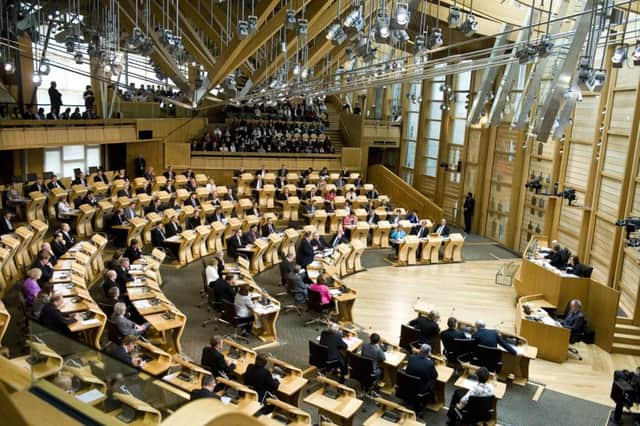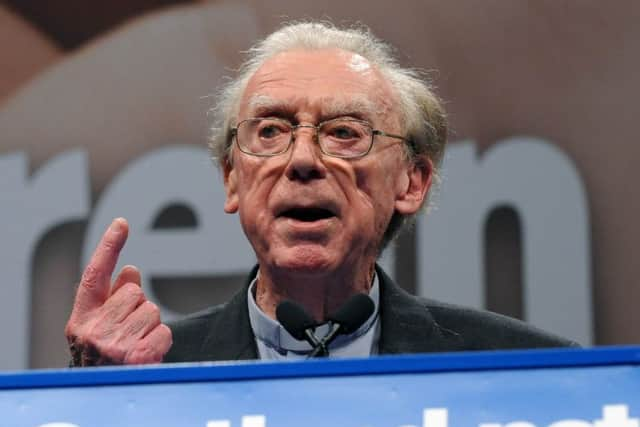Does the Scottish Parliament require more MSPs?


But as Holyrood enters its 17th year, there is growing debate over how it can be improved to reflect the increased powers devolved to Scotland.
Senior former MSPs such as Lord Wallace and Sir George Reid have suggested the number of MSPs may need to increase from the present 129.
Advertisement
Hide AdAdvertisement
Hide AdThe Scottish Parliament is a unicameral legislature, meaning it has no second chamber – a system popularised by Nordic countries.


The Danish parliament, the Folketing, has 179 members, while Norway’s Storting has 169.
The blueprint for Holyrood was largely drawn up by the Scottish Constitutional Convention, a cross-party group led by Canon Kenyon Wright, in the mid-1990s.
It compensated for the lack of a second chamber by handing important oversight functions to Holyrood committees.
But there are concerns this system may not be working as originally envisaged.


Scottish Labour leader Kezia Dugdale last week wrote to the First Minister asking her to reconsider the recent appointment of parliamentary liaison officers to Holyrood committees.
The move follows comments from the new presiding officer, Ken Macintosh, that “now is an opportune moment to take stock and reflect upon how we do our business”.
Paul Cairney, professor of politics and public policy at the University of Stirling, said the potential for reform could be stymied by a lack of enthusiasm among political parties and the public.
Advertisement
Hide AdAdvertisement
Hide Ad“In the run-up to the creation of the parliament in the 1990s the people involved in designing in the system were very aware it had to be sold as political reform – different from Westminster, much less partisan,” he said.
“But there was nothing like that in the run-up to the independence referendum or in the debate on more powers. There was an attitude of: ‘we cracked this in 1999’.
“I thought a parliament in an independent Scotland would require additional MSPs – but the 2013 white paper indicated Holyrood would continue to have 129 members – suggesting everything with the parliament was fine.”
Prof Cairney doubted the number of MSPs would increase in the near future.
“Independence would have been a ‘big bang’ event, which would have allowed the parliament to rethink these things,” he added.
“I don’t think any party would want to sell the idea of increasing the number of MSPs.
“For me, the better value is in boosting parliamentary staff – not those who work directly for MSPs, but for those who work for the committees.”
Tricia Marwick, who stepped down as presiding officer in May, previously called for a fundamental look at how the committees operate and for committee conveners to be elected by their peers.
Advertisement
Hide AdAdvertisement
Hide AdHer successor, Mr Mackintosh, said: “We’ve now experienced all types of government – majority, minority and coalition.
“Significant new tax and welfare powers will come on stream during this session.
“I have my own thoughts on how best that process can be initiated and taken forward and I intend to gather views.
“Any review of the parliament must take account of the views of parliamentarians, but also have that external perspective on how we do business and I believe that could be beneficial early in this session.”